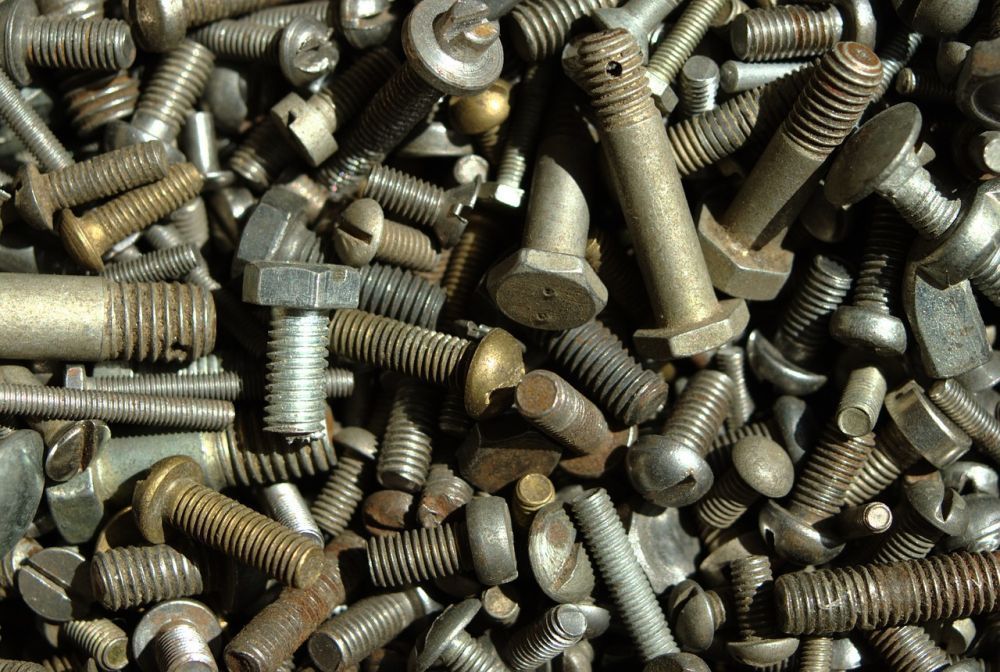
What Kinds of Bolts Are Used for Base Plated Fences?
We’ve spoken about base plated fence posts a few times so far, but we’ve focused mainly on the base plates themselves.
But fence posts won’t stand upright without bolts to attach them to the surface they’re being installed on. No matter how well designed their base plates are! So let’s look at some of the bolts that are used when installing base plated fences.
What Should Be Considered When Choosing Bolts for Base Plated Fences
We're going to get to the different kinds of bolts and hardware you could consider using to bolt your base plated fence in place in a moment, but before we do, there are a few things you should be thinking about when you decide which one to use:
- How big and heavy the fence is - an ordinary chain link fence won't require a heavy duty solution, but a base plated 358 fence would.
- The material you're installing the fence on - is it a solid reinforced concrete slab, a beam or a brick wall? Different materials will respond differently to different types of bolts, and some (like cinder blocks) don't work well for bolted fences at all.
- Other types of loads that might affect the fence - for instance, if it's being installed somewhere very windy, you might need larger, heavier duty base plates and bolts.
- Corrosion resistance - sometimes, a stainless steel bolt will work better than galvanized steel, and so on.
Ideally, if you're designing a heavy duty base plated fence system, you should have an engineer's input. Either as the principal designer, or to approve your proposed fence design. Remember that a base plated fence is only as strong as the bolts that are holding it in place!
Types of Bolts for Fences
Now that we've got the general information about bolts for base plated fences out of the way, it's time to look at the bolts (and one bolt adjacent option) you might want to consider for your fence.
 |
Wedge Anchors or Sleeve AnchorsWedge anchors, which are also known as sleeve anchors in some parts of the world are probably the most common bolt to use with base plated fences and fence posts. They're available in a wide range of sizes, and in various materials. They're also easy to install. |
|
 |
Chemical Anchors - Kit FormThe first type of chemical anchor we're going to mention are the "kit form" that come with a breakable vial or pod of construction adhesive that is placed inside a pre drilled hole. The bolt is then driven into place, breaking the capsule, mixing the chemicals and allowing them to bond. |
|
 |
Chemical Anchor with Threaded RodThe other commonly used type of chemical anchor used to install base plated fence posts is a two part chemical anchor like this one, which is used with threaded rod and usually ordinary hex nuts. This is a much cheaper option, and the threaded rod can be cut to the exact size required. |
|
 |
Nail In AnchorsThey're not suitable for anything other than the lightest of residential fences, but it's worth mentioning that nail in anchors that are designed for use with concrete can be used to attach smaller fence components like brackets to brick, concrete and other surfaces. They can't carry a lot of weight, but they're cost effective and easy to install. |
Finding the Right Bolts for Your Fence
As you can see, there are several options when it comes to bolting a base plated fence in place. There are many different sizes, diameters, materials and more in each of these categories too, so finding the right bolts for your fence can be quite tricky.
If you are buying a fence system from a well known manufacturer, ask them if they have any specifications for installation. They might still require you to have them approved by an engineer, but they might be able to clarify what you should be using.
Your client might also have an engineer or architect on their team who can confirm what kind of bolts you should be using.
Finally, you can speak to a fastener specialist, who should be able to provide you with a few suggestions that you can present to your customer.
Of course, if you're installing a type of base plated fence that you routinely do and there are no strange or complex issues, you can always go with what you know. But whenever you have anything strange on any fence project, it's always best to present your client with their options, and all the information, and let them make the design choices.


